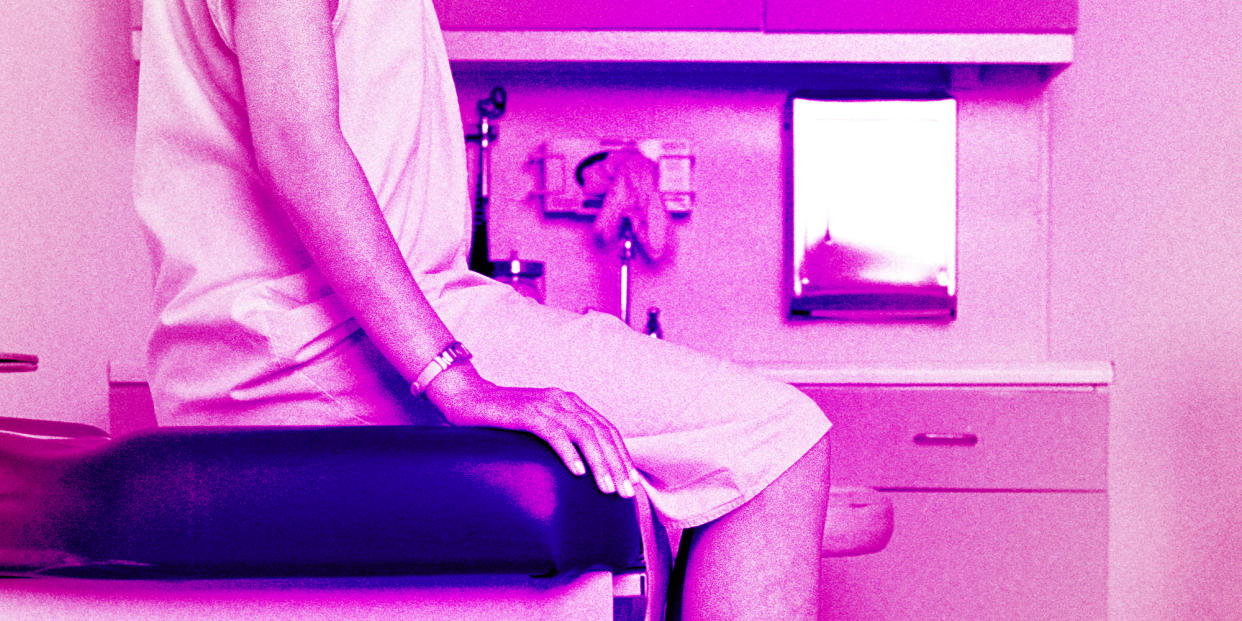Being Denied An Abortion Increases Anxiety


Every day seems to bring more attempts to pass restrictive abortion laws in states across the country at a frightening rate. It is perhaps most alarming that these laws are not based on any evidence about protecting women’s physical or mental health, as is often claimed in legislatures. This week Governor Kasich of Ohio signed the first major restrictive abortion law since the 2016 presidential election, a 20-week abortion ban. This new law prohibits abortions after 20 weeks, four weeks shorter than Ohio’s current law, further limiting access. In Texas, women are now required to receive a pamphlet warning them that they may experience “serious psychological effects after the abortion, including depression, grief, anxiety, [and] lowered self-esteem.”
These policies will have a major impact on women in Ohio, Texas, and in other states considering passing such restrictions. Yet they were not written with true consideration to what happens to women when they are turned away from abortion care. There is now new evidence indicating that when women are denied an abortion, their mental health suffers - and it doesn't when they are able to receive the abortion care they want. This directly counters the claims of those proposing and supporting these restrictive laws.
My co-authors and I found that women who were denied abortion demonstrate more anxiety...
Since 2011, I have been working as a Social Psychologist Researcher at UCSF analyzing data from the Turnaway Study, which is the most comprehensive study of its kind specially designed to assess the effects of having and being denied an abortion on women’s mental health outcomes over five years. Findings from this work were published in a new study in JAMA Psychiatry this week. My co-authors and I found that women who were denied abortion demonstrate more anxiety, lower self-esteem, and less life satisfaction in the short term than women who were able to get their wanted procedure. We also found that women who received an abortion did not experience emerging mental health problems for the entire five year period we studied them.
Despite these findings, currently nine states require women to be counseled on the unsubstantiated negative psychological and emotional responses to abortion. The assumption that abortion harms women has long been embedded in policies restricting women’s access to abortion. In 2007, the Supreme Court Justice Anthony Kennedy wrote in the Gonzales V. Carhart majority opinion which supported a ban on a specific later abortion procedure: “While we find no reliable data to measure the phenomenon, it seems unexceptionable to conclude some women come to regret their choice to abort…severe depression and loss of esteem can follow.”
Currently 27 states require waiting periods between the counseling and abortion. The nature of these laws is based on the claim that they will protect women from experiencing adverse outcomes. Findings from the Turnaway study give us the opportunity to put these claims to rest. We find no evidence to support the notion that denying women wanted care will protect them psychologically.
I hope policymakers will look at this study before making decisions impacting the lives of women...
While it is true that some women may experience clinically-relevant symptoms of depression, anxiety, and post-traumatic stress after having an abortion, we found that the abortion was not necessarily the reason behind these symptoms. When we asked women to identify the source of their symptoms, the most common reasons were prior history of sexual, physical, or emotional abuse, not the abortion. And, while some women did report negative responses to having an abortion, these tended to be about the whole experience of pregnancy, decision making and abortion. Symptoms of post-traumatic stress were just as common among women who had an abortion as women who carried the unwanted pregnancy to term.
I hope policymakers will look at this study before making decisions impacting the lives of women like those who participated in our research. Each woman has a unique story that is not captured by policymakers or many of the laws they are creating. For example, the story of a 35-year-old single mother who was in a very abusive relationship with a partner who frightened her. She reports “not wanting to be attached to the father for the rest of my life” as the reason she sought an abortion. She goes on to describe the stress she was feeling at the time. “It was a very anxious time and it wasn't because of the procedure. It was because I just wanted it done.”
With the election of Donald Trump and Mike Pence along with an aging Supreme Court, the possibility that Roe v Wade would be challenged is no longer far-fetched. Does making America great again mean a return to a time when women were denied access to a common medical procedure? The data from the Turnaway study indicates that enabling women to have abortions - as opposed to forcing women to carry an unwanted pregnancy to term - has a more positive effect on women’s health. If our goal is to protect women’s mental health, then women’s access to abortion should also be protected. Laws that mandate pre-abortion counseling on the basis that abortion harms women should be revised so that the information women receive is the most medically accurate and up-to-date. It is time policymakers trust women to make their own decisions regarding their reproductive lives and stop trying to create barriers to access under the guise of protecting women.
M. Antonia Biggs, PhD is a Social Psychologist Researcher at The University of California, San Francisco.
You Might Also Like

